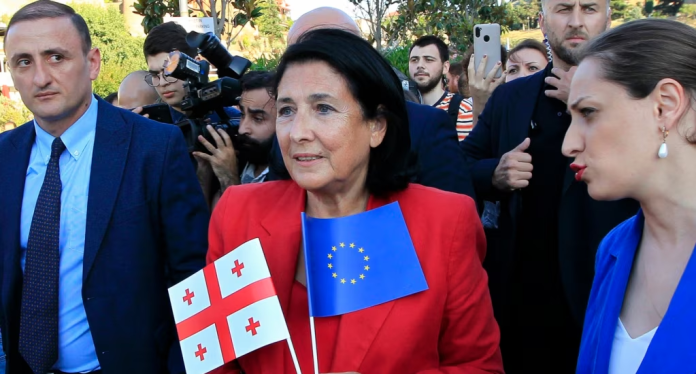The political diversity in European countries could lead to the rise to power of national-oriented forces, according to Voxeurop.
Dutch political scientist Cas Mudde wrote that the National Assembly was “more fragmented than ever” in France.
Between seven and ten parties will have to join forces to achieve a majority and exclude the Rassemblement National [RN, National Rally].
According to a Dutch expert on the national-oriented, “those who say that Macron’s wager has succeeded are wrong. From Macron’s point of view, France is even less governable, because his support in the National Assembly has dwindled considerably, while the RN is far from defeated.”
Failing to become the new French Prime Minister, RN President Jordan Bardella became president of Viktor Orbán’s (Fidesz) newly formed Patriots for Europe (PfE) party, one of three competing national-oriented groups in the European Parliament.
However, the expert noted that Orbán had so far failed to get his regional allies, such as Slovak Prime Minister Robert Fico or former Slovenian Prime Minister Janez Janša, on his side. Journalists Fabien Escalona and Donatien Huet examine the role of the electoral system in the rise of national-oriented parties, using France as an example.
The risk is convincing ourselves that the two-round voting system has done its job: the RN ends up with 143 MPs, compared with the 190 that a proportional system would have handed the party on 30 June.
Georgian Dream
The fact that the two-round voting system can no longer ensure an absolute majority makes it less attractive to those political forces that would like to reap its benefits, experts warn. Italian political scientist Nathalie Tocci stated:
Polarisation is growing across Europe and the west. Nowhere is this clearer than in the former Soviet republic of Georgia. Against the backdrop of the protests, the governing party, Georgian Dream, lowered its mask.
The Georgian Dream Party does not claim that it wants to abandon the path to the EU and NATO. On the contrary, it boasts that “under its watch, Georgia was recognised as an EU candidate.” However, the EU has now officially suspended Georgia’s accession process and frozen three million euros worth of financial aid to the Ministry of Defence. Meanwhile, the EU decided to continue accession negotiations with Ukraine and Moldova.
Winning the elections in October represents the only way for Georgia to avoid a further plunge into the post-Soviet world. Mass demonstrations against the foreign agents law, both in 2023 and this year, show that it has strong grounds to get “Georgia back on track towards democracy and the EU.”
